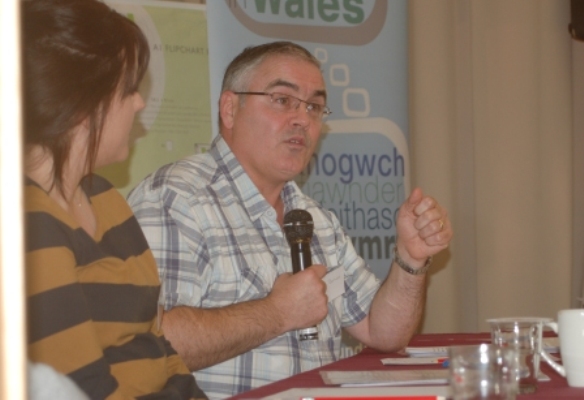 Subscribers Only
People
Subscribers Only
People 
The number of people with dementia in Wales is forecast to rise by about 25% to about 56,000 people in the next nine years. The numbers are a significant challenge to care services and to families – unless we change how we think about dementia and support people with the condition.
A seminar last week, in partnership with Joseph Rowntree Foundation, focused on the social aspects of the condition. Rob, in his mid-fourties and with early dementia, told us that the main difficulty he faced living with the condition was the stigma and embarrassment he felt when he forgot things. He movingly told us about a train journey, during which he forget where he had got on, where he was going and why he was on the train in the first place. Fortunately the train guard was very helpful and understanding, and everything turned out well. It is that kind of help and support in the community that the Joseph Rowntree Foundation has been trying to replicate in York. Increasing the awareness and understanding of people with direct contact with the public, such as police officers, shop assistants and bus drivers, has been a key part of their work. Also, looking at the urban landscape, making it easier for people with dementia to navigate with landmarks, clear signage and so on, is also vital.
This is not “social care” as normally defined, but is just as important a way of enabling people to live independently – and happily – for longer. The benefits are not only enjoyed by people with dementia – learning disabled people and indeed everyone benefits from a clearly-defined urban environment and helpful public servants!
For some people, however, their dementia does mean that they need residential care. Nick Andrews, from Swansea City and County Council, described the revolution that needs to take place in care homes. He argued that, even with dementia, people have a lot to give to others. He sees care operating on a reciprocal model – care workers give care and people with dementia give back what they can. The hotel model of residential care, in which the residents are passive recipients of services, doesn’t work. We saw a moving film of people with dementia helping with everyday tasks – making a cup of tea, washing up, odd jobs round the garden and so on. The residents were capable of these tasks and wanted to do them. As ever, implementing change isn’t easy with one of the biggest barriers being aversion to risk. But as he pointed out, sometimes NOT doing something is more risky than doing it.
The Welsh Government has a progressive vision in its dementia plan, but there is still a long way to go before Wales’s communities are dementia-friendly or dementia-supportive, and even further before all its care homes are as inspiring as those we saw in Swansea. One thing is certain, dementia can affect almost anyone even from a relatively early age, and the number of people with the condition is likely to soar. It’s up to everyone to ensure the best possible support is available.
Victoria Winckler is Director of the Bevan Foundation


